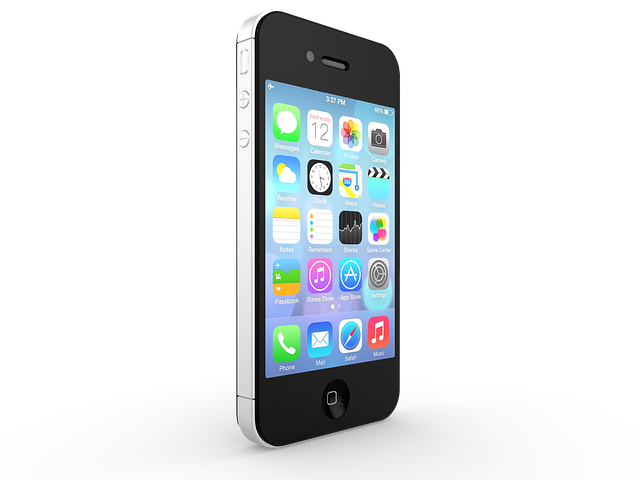Rochester, NY's telemarketing industry boomed pre-COVID-19 due to favorable regulations and a skilled workforce. The pandemic forced businesses to transition from in-person to remote work, impacting sales strategies. Do Not Call Laws and strict enforcement by Do Not Call Lawyers in New York became essential to protect consumers from spam calls. Companies adapted by investing in digital marketing, personalized client relationships, and sophisticated lead generation techniques, reshaping the city's economic landscape. With consumer behavior changes and heightened privacy awareness, navigating Do Not Call Laws and hiring legal experts remain crucial for telemarketers in New York.
“The pandemic significantly reshaped the telemarketing landscape in Rochester, NY. Pre-pandemic, the city witnessed a surge in outbound sales calls, reflecting its growing reputation as a hub for telemarketing excellence. However, with stay-at-home orders and shifting consumer priorities, traditional marketing strategies faltered. This article explores how the crisis influenced call center operations and sales tactics, delving into changes in consumer behavior and evolving Do Not Call laws in New York state. It also highlights the crucial role of legal experts, including Do Not Call lawyers in New York, in navigating this new regulatory environment.”
The Rise of Telemarketing in Rochester Pre-Pandemic
Before the pandemic hit, Rochester, NY, experienced a surge in telemarketing activities, with numerous call centers setting up shop across the city. The region became known for its robust telecommerce industry, attracting businesses due to its skilled workforce and favorable regulations. Many residents were accustomed to receiving calls from various sources, including Do Not Call Lawyer New York, Do Not Call Attorney New York, and Spam Call law firms New York. This trend was further fueled by the state’s Do Not Call Laws New York and the presence of specialized Do Not Call Lawyers New York and Do Not call law firms New York, ensuring consumer protection.
The city’s economic landscape changed dramatically with the arrival of COVID-19, forcing many businesses to adapt quickly. Telemarketing, once a thriving sector, faced unprecedented challenges as stay-at-home orders and social distancing measures came into effect. Companies had to reinvent their strategies, and while some successfully transitioned to remote work, others struggled to maintain their pre-pandemic volumes, prompting them to explore alternative marketing approaches.
Impact on Sales and Marketing Strategies During the Pandemic
The COVID-19 pandemic significantly reshaped sales and marketing strategies in Rochester, NY, particularly within the telemarketing sector. With physical distancing measures in place, many traditional face-to-face sales approaches became impractical, prompting businesses to adapt their tactics. This prompted a surge in the adoption of remote work and digital marketing channels for telemarketers. While some companies struggled with the transition, others found innovative ways to leverage technology, such as video conferencing, email campaigns, and social media outreach, to maintain and even grow their customer base.
Do Not Call Laws in New York played a pivotal role during this period. As consumer privacy and protection became heightened concerns, these laws prevented spam calls from overwhelming residents. This shift towards more targeted and compliant marketing strategies required telemarketing firms to invest in sophisticated lead generation techniques. Many Do Not Call Lawyer and Attorney practices in New York had to re-evaluate their outreach methods, focusing on permission-based marketing and building personalized relationships with clients—a trend that is expected to continue post-pandemic.
Changes in Consumer Behavior and Do Not Call Laws
The COVID-19 pandemic significantly reshaped consumer behavior, with many people adopting new habits and preferences that influenced how they interact with telemarketers. With stay-at-home orders and social distancing measures in place, there was a notable increase in home phone usage, as people spent more time indoors. This shift presented both opportunities and challenges for telemarketing companies in Rochester, NY. While some businesses adapted by focusing on digital marketing strategies, others struggled to maintain their customer base.
Furthermore, the pandemic also brought about heightened awareness of privacy rights, leading to a stricter enforcement of Do Not Call laws in New York State. A Do Not Call Lawyer or Do Not Call Attorney in New York can help businesses navigate these regulations, ensuring they respect consumer choices and avoid potential legal repercussions from Spam Call law firms. With the new normal encouraging more online interactions, understanding and adhering to Do Not Call Laws New York, as well as state-specific regulations, became crucial for telemarketers to maintain a positive reputation and foster trust with their target audience.
Legal Aspects: Protecting Consumers and Holding Marketers Accountable in New York
The COVID-19 pandemic brought unprecedented changes to various industries, and telemarketing was no exception. As businesses adapted to new normalcy, consumer protection laws in New York became even more crucial. The state’s strict Do Not Call laws were already in place to safeguard residents from unwanted phone marketing, but the pandemic highlighted the need for even stricter enforcement.
In light of this, Do Do Not Call Lawyers in New York played a pivotal role in holding telemarketers accountable. With an increase in spam calls during the pandemic, these legal experts ensured that businesses complied with the Do Not Call Laws and respected consumer privacy. Their work helped protect New Yorkers from deceptive marketing practices, especially as many scammed or fraudulent calls targeted vulnerable individuals staying at home. This led to a more transparent telemarketing landscape, where companies had to adhere to strict guidelines, ensuring consumers’ rights were upheld during these challenging times.






